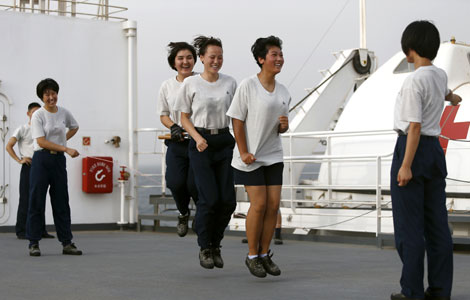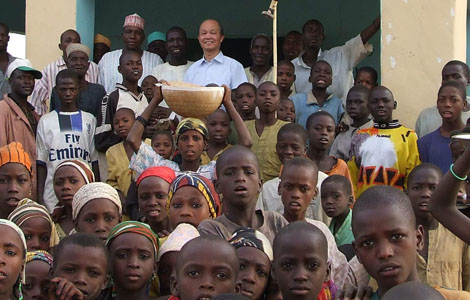Low salaries discouraging overseas academics
Updated: 2013-08-26 07:25
By Yang Yang (China Daily)
|
||||||||
Internationally, salaries are among the most important factors influencing the flow of top academics, given that they spend years working to acquire higher academic qualifications.
Isaac Holloway currently teaches undergraduate and graduate courses in International Business at Tsinghua University in Beijing. He studied at the University of British Columbia in Canada, gaining a bachelor's degree in math in 2005, followed by an MA in economics in 2006, and a PhD in business economics in 2012.
Holloway said many of China's elite universities are still attracting quality teachers and competing at the international level, at least in economics and management studies.
"This certainly has to do with the salary they can offer, which is competitive with schools in North America, especially given the lower cost of living here. Many of my colleagues at Tsinghua School of Economics and Management are accomplished academics with degrees from top US schools and have been published in top international journals," he said.
However, David Robb, an associate professor and a research fellow at Tsinghua University School of Economics and Management, said the average salary across all ranks and universities is roughly 6,000 yuan ($982) a month. That's low compared with the average entry-level salary in Canada of $5,733 and a full professors' $9,485. The average for newly hired faculty members in the US is $4,950.
Tsinghua's School of Economics and Management is at the forefront of reforms, including salaries and the tenure system, according to Holloway. However, that's the exception rather than the rule and in other parts of China, salaries remain very low.
At universities in the west of the country, lecturers earn 3,000 yuan a month and usually have to teach 12 to 16 hours a week, said Dan Hansong, associate professor of English at Nanjing University.
"With such low salaries, it's not surprising that higher education institutions in those regions have trouble hanging onto talent, especially younger people," he said.
The salaries offered to foreign teachers have not improved much in recent years, even though the cost of living is rising in China, said Dan.
The low salaries put younger teachers under heavy financial pressures in terms of buying houses and paying for their children's education, he said, adding that the pressure to conduct research is greater on younger teachers, meaning that many give up on academia and opt for other lines of work instead.
(China Daily USA 08/26/2013 page7)
Most Viewed
Editor's Picks

|

|

|

|

|

|
Today's Top News
Rousseff consults cabinet on US spy claims
President Xi leaves for Central Asia visit
Banks rake in profits
Automakers look to drive sales overseas
Trading error dims Everbright's prospects
Li sees opportunities despite dispute
Assad slams Western accusation
Xi's planned visit to Turkmenistan lauded
US Weekly

|

|














